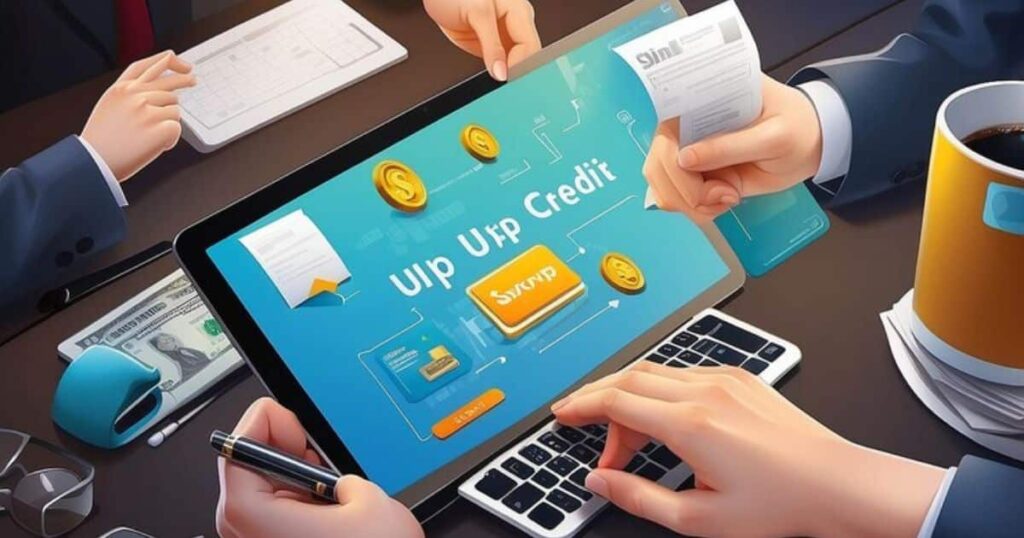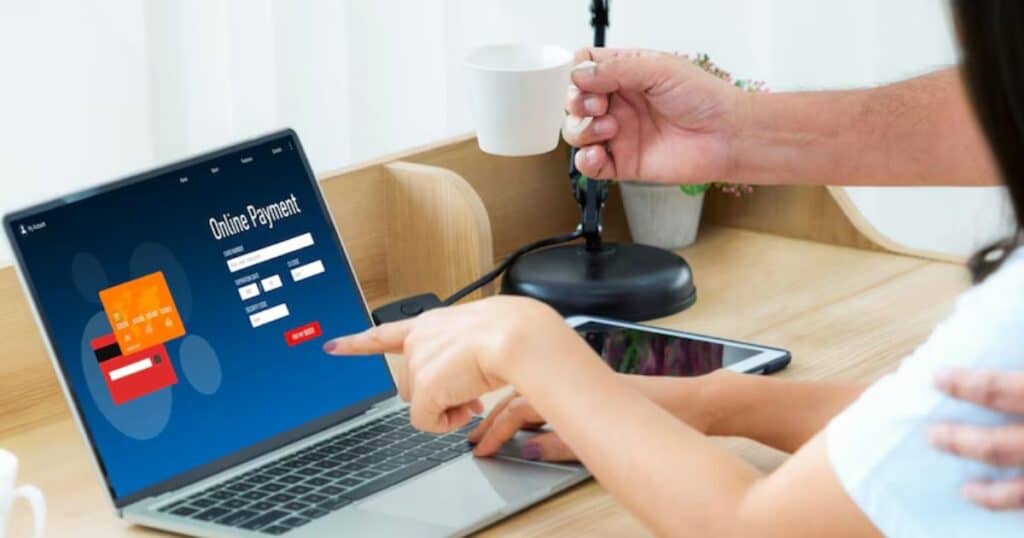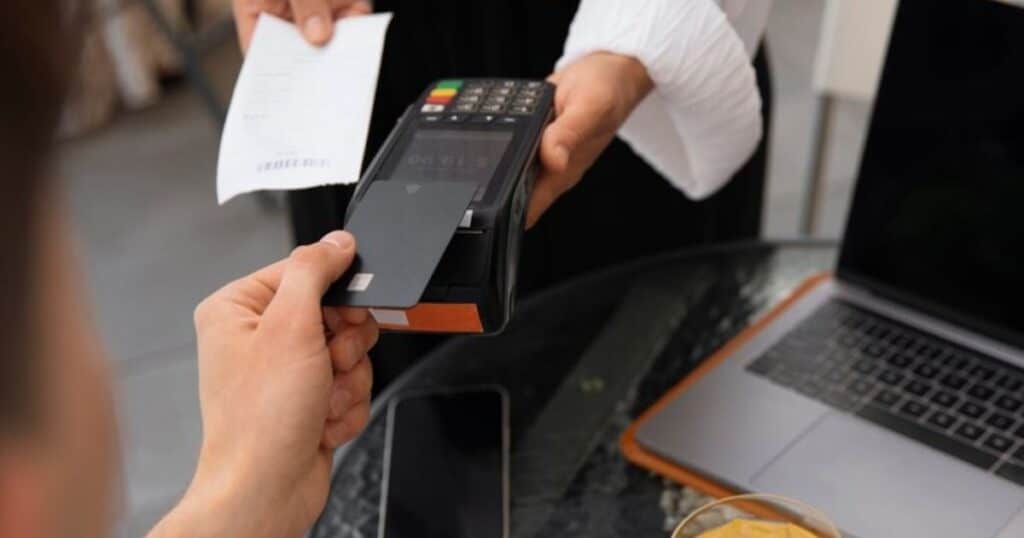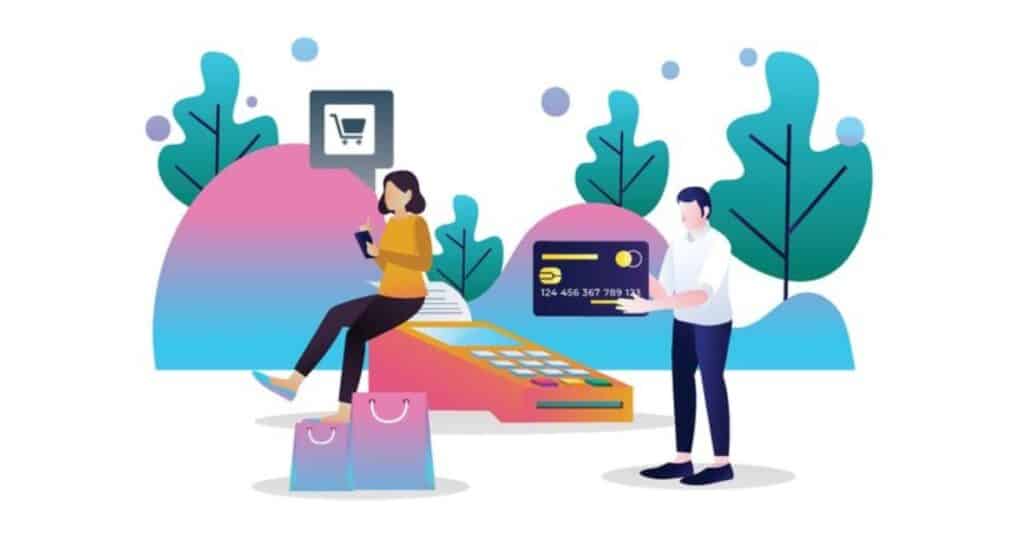Being “in debit” means you owe money or have a negative balance, but contrary to what it sounds like, you don’t actually have to pay that balance immediately.
Accounts like credit cards, loans, utility bills, and bank accounts commonly have periods when you’re in debit between billing cycles. As long as you meet minimum requirements, providers allow you to carry debit balances and pay over time rather than demanding lump sum payment upfront.
This guide explores the reasons behind this seemingly contradictory situation and how to properly manage being in debit.
Key Takeaways
- Being “in debit” means you owe money or have a negative balance on an account
- Common accounts that can go into debit include bank accounts, credit cards, merchant accounts, trading accounts, overdrafts, expense accounts, and loans
- While in debit, you technically owe money but don’t have to pay immediately due to consumer protections
- Properly managing accounts in debit is crucial to avoid fees, interest charges, and credit score impacts
- Proactive strategies like budgeting, monitoring balances, and seeking assistance can help minimize debit’s effects
What Does In Debit Mean?
The term “in debit” refers to a situation where you owe money or have a negative balance on an account. It’s essentially the opposite of having a positive balance or being “in credit.” When an account is in debit, the account holder is indebted to the company or lender.
For example, if your bank account is in debit by $500, it means you’ve spent $500 more than what you had available in the account. Or if your credit card statement shows a $2,000 debit balance, that’s the amount you owe the credit card company for that billing cycle.
The terminology can vary slightly across industries, but the core concept remains the same – being in debit indicates you have an outstanding balance or debt that needs to be paid.
What Other Accounts Use ‘In Debit’?

The “in debit” status is commonly used across various types of accounts beyond just basic checking accounts and credit cards. Here are some other accounts where you may encounter debit balances:
Bank Accounts
Bank accounts like checking and savings can go into debit if you overdraw or overdraft from the account, spending more than your available balance.
Credit Card Accounts
Credit cards operate on a revolving credit model, so any charges you don’t pay in full by the due date create a debit balance that rolls over to the next billing cycle, often with interest.
Merchant Accounts
Businesses that accept credit card payments have merchant accounts that can go into debit if there are excessive chargebacks, refunds, or fees that outweigh sales volumes.
Trading and Investment Accounts
Investors and traders may carry debit balances in their margin accounts when borrowing funds from the broker to purchase securities.
Overdraft Accounts
Some banks offer overdraft accounts or lines of credit specifically designed to cover shortfalls, allowing your account to go into debit temporarily.
Expense Accounts
Employee expense accounts can show debit balances until the employee is reimbursed for approved business expenses.
Loans and Debts
Any type of loan, whether a mortgage, auto loan, personal loan, or student loan, creates an outstanding debit balance that must be repaid over time.
The ability to go into debit is not necessarily a bad thing, as it provides flexibility – but it’s crucial to manage debit balances responsibly.
Reasons for Being In Debit
There are numerous legitimate reasons why accounts might temporarily go into debit, such as:
- Overspending or Overdrawn Accounts: Spending more than the available balance in a bank account or exceeding a credit limit
- Delayed Billing or Payment Processing: Debit can occur between the time a charge is made and when the payment is processed
- Forgotten or Missed Payments: Accidentally missing a loan, utility, or other payment due date
- Unexpected Expenses or Emergencies: Having to cover unanticipated costs like medical bills or car repairs
- Cash Flow Issues: A temporary mismatch between income and expenses, common for businesses and self-employed
While occasionally going into debit is normal, chronic or excessive debit balances could indicate larger financial troubles that need to be addressed.
Impact on Your Finances and Credit Score
Being in debit can have ripple effects on your overall finances and credit health if not managed properly:
Credit Utilization Carrying high debit balances, especially on revolving accounts like credit cards, increases your credit utilization ratio. This can negatively impact your credit scores.
Fees and Interest Charges Many accounts charge fees (e.g. overdraft, late payment) or accumulating interest when in debit status, compounding the amount you owe.
Potential Credit Account Closures If debit balances persist without payment, creditors may eventually close accounts and write off the debt, damaging your credit further.
Collections and Legal Action Severely delinquent debts may be sent to collections agencies or result in legal action like wage garnishment.
To minimize debit’s impact, it’s wise to actively monitor balances, make payments as quickly as possible, and avoid excessive or long-term debit situations when you can.
Read More About: Demystifying WuVisaAFT Charges on Debit Cards: A Comprehensive Guide
Managing Your Account in Debit

If you do find yourself in debit, here are some tips for effectively managing the situation:
- Prioritize High-Interest Debts First
- Focus on paying down debit balances with higher interest rates first to limit compounding interest charges
- For credit cards, at least make the minimum payment each month while paying down other balances faster
- Utilize Payment Plans or Hardship Programs
- Speak to creditors about structured payment plans, temporarily reduced payments, or COVID-19 hardship assistance
- Consolidate Balances When Possible
- Look into balance transfer offers or debt consolidation loans at lower interest rates
- Adjust Budget and Spending Habits
- Analyze your spending and make cuts to expenses you can reduce or eliminate
- Building emergency funds can help prevent future debit issues due to cash shortfalls
- Seek Credit Counseling If Needed
- For severe debt issues, nonprofit credit counseling agencies can provide guidance and debt management plans
Proactively taking steps to pay down debit balances, even gradually through payment plans, is crucial to improving your financial standing over time.
Requesting a Refund
In some situations, you may have made a payment towards an account while still carrying a debit balance from previous charges or billing periods. If this occurs, you generally have the right to request that payment be returned to you as a refund.
The process can vary across companies, but typically you’ll need to:
- Submit a Refund Request to the company, often in writing
- Provide Account Details like account numbers and dates
- Verify Amount You’re Requesting Refunded
- Allow Processing Time as refunds can take a few weeks
For utility bills, requesting refunds within 2 billing cycles is common. For merchants and services, limits like 60-90 days may apply. And for loans, mortgage refunds or recasting may be allowed after lump sum payments depending on the terms.
It’s best to be proactive in notifying companies if you overpaid while in debit to recoup those funds efficiently.
Switching Accounts/Suppliers
If you’re unhappy with an account, loan, or service you have a debit balance on, you can choose to switch to a different provider. Some tips for doing so smoothly:
- Follow Cancellation/Closure Policies: Most accounts have defined processes for properly closing while in debit
- Clear Outstanding Balances First: New providers usually won’t accept transfers until existing debit is paid
- Watch for Fees: Termination fees may apply if closing accounts early while in debit
- Check for Prorated Charges: You may owe prorated amounts for services used during a partial billing cycle
- Update Billing Info: Provide new payment info to your new provider to prevent missed payments
Taking the time to properly close out accounts avoids complications down the road when trying to open new accounts and establish other lines of credit.
Tips for Effective Bill Management
One of the best ways to prevent accidentally going into debit is by practicing smart billing and payment habits:
Budgeting
- Creating a monthly budget makes it easier to plan for upcoming expenses and bills
- Leave room for unplanned costs to avoid overdrafts
Payment Scheduling
- Schedule bill payments on set days, ideally a few days before the due date
- Take advantage of automatic recurring payment options
Account Notifications
- Sign up for email, text, or mobile app notifications of bills, payment reminders, and low balances
Review Statements Regularly
- Thoroughly reviewing monthly statements can catch errors and help reconcile balances
- Going paperless with online statements makes this easier
Use Autopay Wisely
- Autopay prevents late fees but can overdraw accounts – monitor balances closely
Building habits like these into your bill payment routine provides a safety net against late payments and potential debit issues.
Read More Related Post: What Does TST* Mean on Your Credit Card Statement? A Comprehensive Guide
Additional Support for Bill Payments

For those experiencing financial hardship, there are various assistance programs and resources available:
- Federal/State Utility Assistance
- The Low Income Home Energy Assistance Program (LIHEAP) provides funds to low-income households for heating and cooling costs
- Many states offer additional utility payment assistance programs
- Utility Company Payment Plans
- Most utility providers have payment plan options, debt forgiveness, or hardship policies to keep customers connected
- Be proactive in contacting them if you’re struggling to pay bills
- Non-Profit Organizations
- Local charities, churches, and community organizations may have programs to help with rent, utility bills, and other essentials
- The United Way and Salvation Army are two larger non-profits that assist with basic needs
- Government Assistance
- Welfare programs like Temporary Assistance for Needy Families (TANF) can cover some household expenses
- Social Security, disability benefits, and unemployment may also help those who qualify
Don’t hesitate to explore these options during tough times. The key is being proactive in communicating with billing companies and seeking help before accounts go severely delinquent.
The Importance of Energy Consumption Awareness
For homeowners and renters, being mindful of your household’s energy consumption levels is important in managing utility costs and debit balances. Higher usage drives up electricity, gas, and water bills.
Some energy-saving tips:
- Adjust Thermostat – Finding an optimal year-round temperature can reduce heating and cooling costs
- Use Appliances Efficiently – Only run dishwashers, washing machines, etc. with full loads
- Insulate and Seal Drafts – Improve home insulation, seal leaks around windows/doors
- Install Efficient Lighting – Replace old bulbs with LED lights which use far less energy
- Unplug Inactive Electronics – Many devices still draw power when not in use
Investing in energy-efficient appliances and home upgrades provides longer-term reduction of utility expenses. Even small daily habits like turning off lights make a difference over time.
Why Don’t You Have To Pay When In Debit?
At this point, you may be wondering – if being “in debit” means you owe money, why don’t you have to pay that balance immediately? There are a few key reasons:
- Consumer Protection Laws Regulations like the Truth in Lending Act restrict lenders from engaging in abusive billing and collection practices. There are defined processes they must follow.
- Contract Terms and Policies The terms and conditions you agree to when opening accounts dictate the billing cycles, payment expectations, and consequences of debit balances. As long as you meet minimum requirements, accounts remain open.
- Incentive to Maintain Business Companies have incentives to keep you as a customer and collect what’s owed over time rather than demanding lump sums. Established relationships and payment histories play a role.
- Assumption of Temporary Shortage For revolving accounts especially, providers assume debit balances may occasionally result from temporary cash shortages rather than an ability to pay overall.
However, providers can take action like closing accounts, sending to collections, or litigation if severely delinquent debit balances show an unwillingness or inability to ultimately pay what’s owed.
Final Thoughts: Most of Us Are In Debit
The reality is that most individuals and households carry some form of debit balance, even if temporary or revolving. Data shows:
- 83% of U.S. workers live paycheck to paycheck at least some of the time
- Average U.S. credit card debt is over $5,300 per household
- Student loan debt averages over $37,000 per borrower
- 70% of homeowners have outstanding mortgage balances
Being in debit is extremely common and not something to feel guilty about, as long as you responsibly manage it through:
- Budgeting and financial awareness
- Making payments consistently, even if minimum amounts
- Avoiding excessive or unnecessary new debt
- Communicating with creditors about financial difficulties
- Exploring assistance programs if needed
Debit balances aren’t inherently bad – they allow for financial flexibility and cash flow management. The key is using that flexibility wisely and taking a proactive approach to paying down what you owe over time. With discipline, most people can successfully keep debit from becoming overly burdensome.
Read More About For Related Posts…

Howdy, editor at FinanceEon.com, brings over a decade of financial journalism experience. He ensures accuracy and insightful analysis, guiding a team on market trends and investment strategies.







